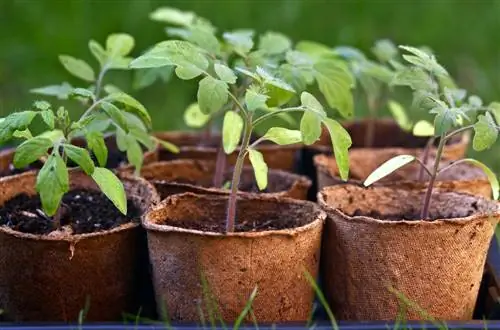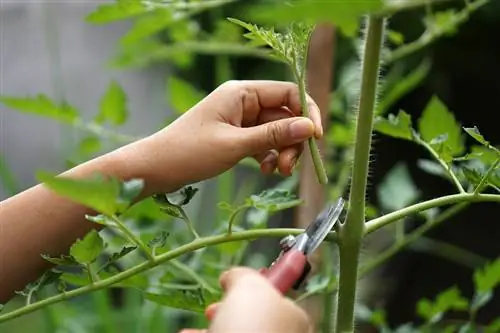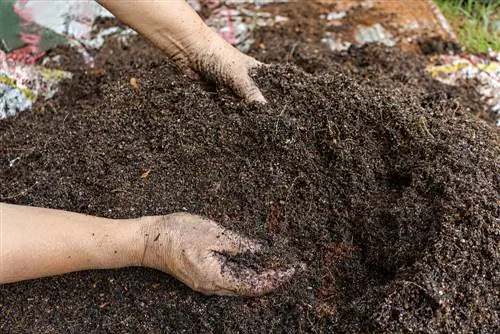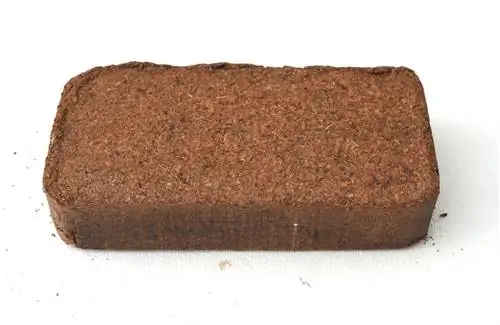- Author admin leonars@hobbygardeners.com.
- Public 2023-12-16 16:46.
- Last modified 2025-01-23 11:22.
Tomatoes like to extend their roots in the airy, loose coconut fiber substrate. Seedlings and adult tomato plants benefit equally from the diverse benefits. This guide provides practical tips and tricks on how to skillfully use coconut soil for tomatoes.
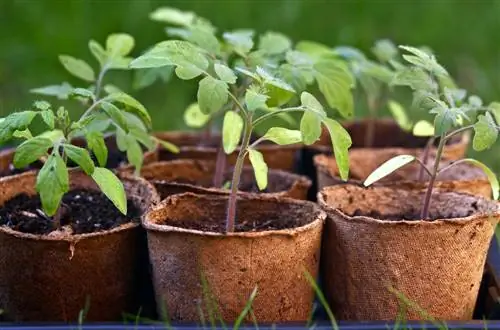
Why is coconut soil good for tomatoes?
Coconut soil is ideal for tomatoes as it improves the soil structure, promotes air supply and permeability. Tomato seeds can be sown in coconut seed pellets to form strong roots. When planting in a bed or pot, a mixture of garden soil and coconut soil is recommended.
Sowing tomato seeds in coconut seed tablets
Premium quality coconut soil contains no nutrients. For this reason, the purely natural substrate is ideal for sowing seeds. Lean soil motivates tomato seedlings to grow more vigorously than if there was a rich nutrient buffet right in front of the root tips. Special coconut swelling tablets (€12.00 on Amazon) are perfect for sowing tomato seeds, as they make strenuous pricking unnecessary. This is how it works:
- Place the coconut swelling tablets next to each other in a waterproof bowl or seed tray
- Pour lukewarm, soft water over it, e.g. B. three quarters of a liter for 10 tablets
- Let it soak for 5 minutes
- Pour off excess water
Each coconut swelling tablet is equipped with a fine net that stabilizes the shape into a small pot. Open the net a little on the top to make a small depression in it with the pricking stick. Sow one or two tomato seeds into this hole. As a light germinator, the covering substrate layer may be a maximum of 0.5 centimeters high.
In a warm, bright window seat, keep each mini spring pot continuously slightly moist. When the first tender roots grow through the net, plant your pupil in a large pot with tomato soil or directly outdoors from mid/late May.
Optimize garden soil with coconut soil
Smart tomato gardeners appreciate the benefits of coconut soil in the bed. Coconut fibers improve the soil structure, improve air supply and permeability to protect against waterlogging. If you mix garden soil and coconut soil in a ratio of 1:1, this foresight will be rewarded with he althy, vital tomato plants.
Balcony gardeners cultivate tomatoes in a mix of organic tomato soil and coconut soil. To ensure that heavy eaters do not suffer from a nutrient deficiency, each humus brick is fertilized with liquid vegetable fertilizer as part of the swelling process. It's easier with pre-fertilized coconut soil from specialist retailers.
Tip
It's not just tomatoes that benefit from coconut soil. Numerous popular vegetables and herb plants thrive in coconut fiber substrate. Primarily varieties with a penchant for a slightly acidic pH value between 5.5 and 6.5, such as chili, zucchini, peppers, beans, basil or parsley, show their best side in the natural substrate.

